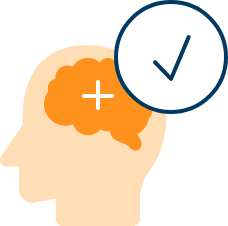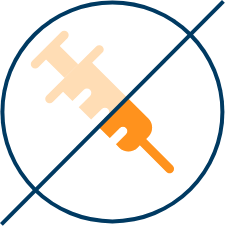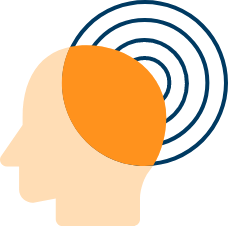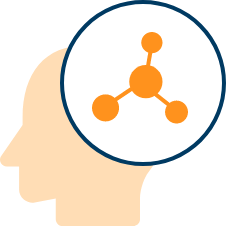An Overview of Depression

Before learning more about TMS, I want to illustrate the severity of clinical depression in the United States. 1 in 4 women (and 1 in 8 men) will experience an episode of major depression during their lifetime.

Let’s put it in perspective. This means if you were to see 4 random women in a day, hypothetically, one of them will suffer from an episode of Depression in their lifetime.

Depression is a lot more widespread than we think. Many people suffering from depression live with it for YEARS. Many never find a cure.

Some of the reasons: they don’t recognize they are depressed so never seek treatment. Others DO recognize they are depressed, and they seek treatment but are undertreated or misdiagnosed (maybe with an anxiety disorder) by their doctor. Some people are too apprehensive about seeking help.

At any one time, 7% of US adults (16 million people!) are battling depression. This next statistic is staggering. If you have depression, you have a 30% chance of attempting suicide. Each year in the US, depression will cause 25,000 COMPLETED suicides. Suicide is in the top ten leading causes of death in the US.
Causes Of Depression
- 1
Genetic
First, you may have inherited a genetic predisposition for depression where it occurs in places of your family tree, like your parents, grandparents, aunts and uncles, and/or siblings
- 2
High Levels of Stress
Second, depression could be triggered by very high levels of stress in your environment, such as being laid off and your finances are in ruin
- 3
Poor Coping Skills
Third, you may have maladaptive coping skills where you habitually make bad decisions, such as choosing romances that make your life miserable
- 4
Other Health Problems
Fourth, medical problems may cause depression, such as thyroid disease causing a “hormonal” depression, or the stress of chronic daily pain from a back injury causing disability and therefore depression.
3 Minute Depression Test
- 7275771203
- Free Consult
FAQ’s
Yes! With the exception of Medicaid, all major Insurance plans cover TMS therapy. Dealing with insurance companies can be a daunting, overwhelming & intimidating task. For someone who is unfamiliar with the insurance coverage process, this can be a nightmare. Luckily, our practice has dealt with these insurance companies for over 30 years. We have created an efficient process that allows us to check and see if you’re covered. Let us handle the insurance headache while you fight your depression. Learn more here
One of the advantages of TMS therapy is its lack of annoying side effects compared to drug therapy. Sometimes antidepressants can cause sexual issues, weight gain, make you feel like a zombie or have numb feelings. TMS doesn’t come with any of that. It is safe. And it’s effective. Learn more here
Research has shown that when antidepressants are ineffective, TMS is the better option. Over 80% of patients benefit from TMS therapy! None of our patients get worse.. what do you have to lose?
No! They are completely different treatments. Unlike ECT, TMS is a non-invasive treatment. One common side effect of ECT is memory loss. TMS can actually help improve your memory as your depressive symptoms go away.
No! TMS can help alleviate more than just your depressive symptoms 🙂 Our TMS patients typically battle multiple diagnoses: Anxiety, Insomnia, Depression, PTSD, Traumatic Brain Injuries, OCD & more. With customized treatments, TMS can help!
The best way to describe TMS benefits is by reading reviews from our TMS patients. We strongly encourage you to read the TMS success stories. We have videos, handwritten reviews, google reviews, and long-form TMS reviews. Each story displays the effective, life-changing benefits of TMS 🙂






